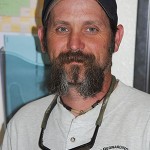“The first principle is that you must not fool yourself and you are the easiest person to fool.”
-Richard P. Feynman
The recent severe storms once again brought the question of climate change to the fore. Climate is not the same as weather so it is not possible to blame a particular storm on man-made changes in our atmosphere, but climate scientists know that such changes are real.
Denying this fact is, I believe, akin to our ancient relatives who clung to the belief that the Earth was at the center of the universe and the Sun revolved around it. Science, however, doesn’t deal with superstition or beliefs; it deals with facts about the natural world.
Science is a method of inquiry, nothing more, nothing less. It is not magic, though, according to the late science fiction author Arthur C. Clarke. Any sufficiently advanced technology is indistinguishable from magic. That leaves many of us relying on rocket scientists, climate scientists, physicians and other experts to interpret the science for us lest we succumb to the magic.
So, how does science work? It starts with a question about nature. What is that? Why is it doing that? Then an idea (hypothesis) is proposed. For example, the Earth orbits the Sun. Then an experiment is designed to prove the idea. Data is collected and the results analyzed. The theory is proven or disproven, always provisionally, susceptible to more analysis or data.
Then comes the useful part; the future can be predicted. We know the Earth orbits the Sun and, building on that, we learn when the Sun will rise and set, when eclipses will occur.
Although the basic premise is simple, it remains true that any of us can easily be fooled. Therefore, science is rigorous. Statistical analysis must be exact. As a result, scientific papers get retracted, opinions get changed, theories get tweaked.
That is one of the most wonderful thing about science; it is always open to questions but you need to know what you are talking about to question settled science, that is, those questions for which there is a scientific consensus, on which the majority of experts agree. Remember that scientists — individuals susceptible to being fooled just as any of us — as a group do not have an agenda, do not start with beliefs, but base conclusions on data that is observed and analyzed.
With this as a background, I cut to the chase. Global warming is real, it is man-made, and it is a serious risk to mankind.
Evolution is a fact. Vaccines work and do not cause autism. These are not controversial, they are settled science, proven with overwhelming amounts of data. They allow us to predict the future, to plan for it, perhaps to change it.
Admittedly, some facts are inconvenient. No one who has made a fortune off of cigarettes wants to believe that they have caused so much harm. Indeed, for many years that harm was unknown, but those days are long gone and it is difficult to imagine how marketing cigarettes can now be justified even though it would cause a lot of people to lose a lot of money if it were stopped.
Likewise, about one out of every 1,000 children with measles will die, so it is sad to see parents avoiding vaccination based on lies from a discredited scientist who falsified data so he could sell his own vaccine.
Science, being a human enterprise, is far from perfect. It is, however, the best hope we have to find the truth about our natural world.
Dr. Kluzak, an Idyllwild resident, is board certified in Anatomic Pathology, Obstetrics and Gynecology. He also is a freelance photographer for the Town Crier.











You’re Hired!